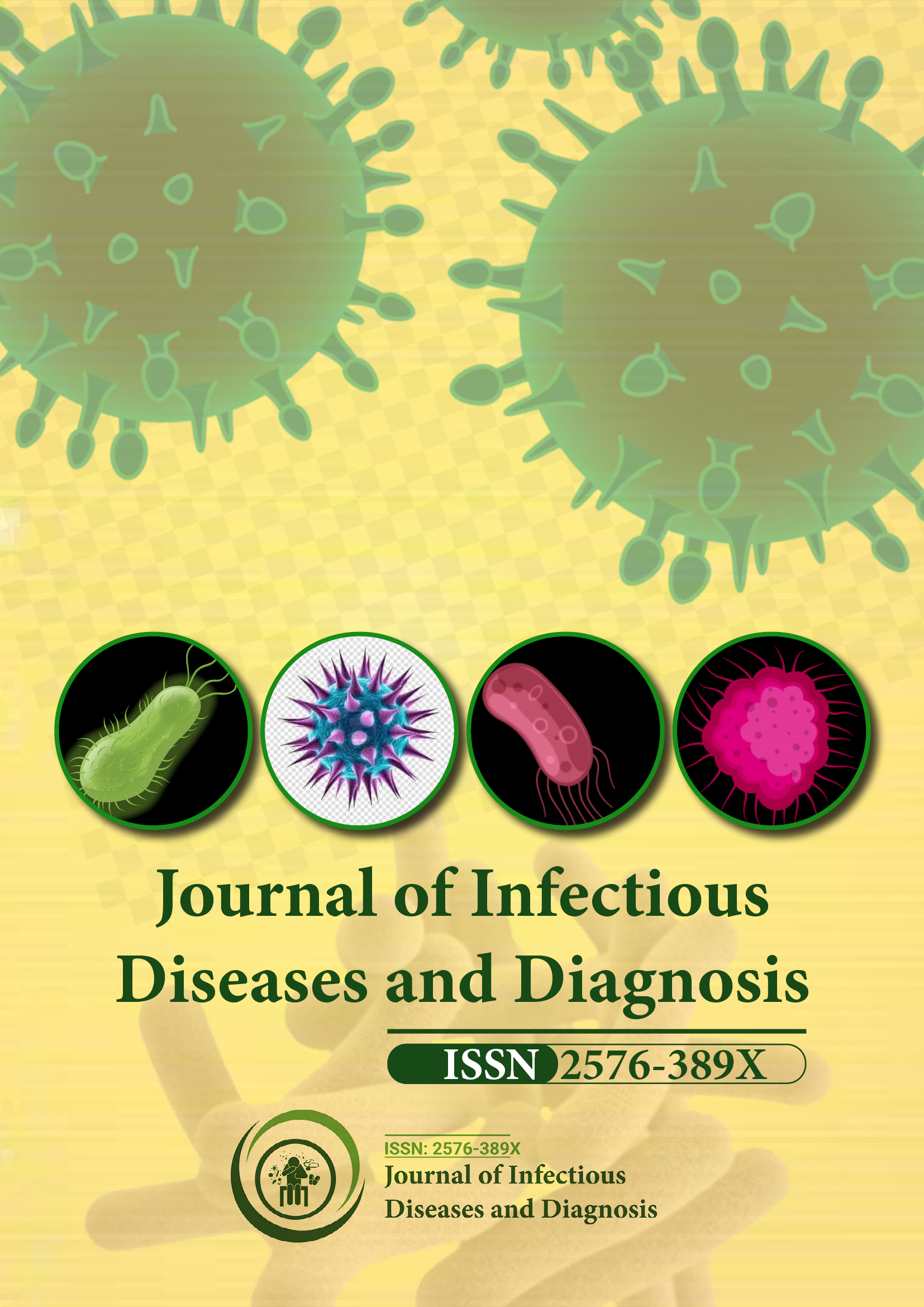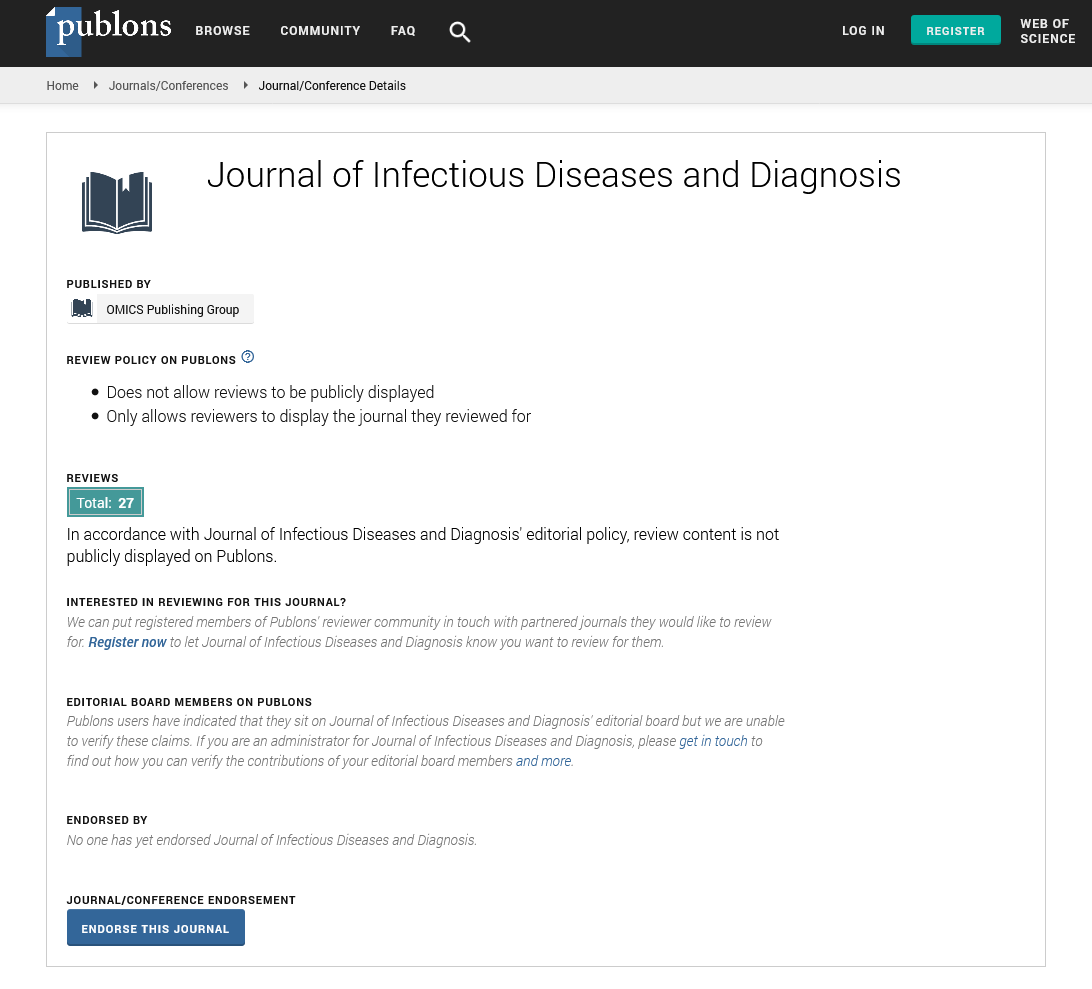Indexed In
- RefSeek
- Hamdard University
- EBSCO A-Z
- Publons
- Euro Pub
- Google Scholar
Useful Links
Share This Page
Journal Flyer

Open Access Journals
- Agri and Aquaculture
- Biochemistry
- Bioinformatics & Systems Biology
- Business & Management
- Chemistry
- Clinical Sciences
- Engineering
- Food & Nutrition
- General Science
- Genetics & Molecular Biology
- Immunology & Microbiology
- Medical Sciences
- Neuroscience & Psychology
- Nursing & Health Care
- Pharmaceutical Sciences
Commentary - (2023) Volume 8, Issue 3
Vitamin D Supplementation in Post-Transplant Care: Enhancing Immune Function and Reducing Infection Risk
Krit Friedman*Received: 01-May-2023, Manuscript No. JIDD-23-21708; Editor assigned: 03-May-2023, Pre QC No. JIDD-23-21708 (PQ); Reviewed: 17-May-2023, QC No. JIDD-23-21708; Revised: 24-May-2023, Manuscript No. JIDD-23-21708 (R); Published: 31-May-2023, DOI: 10.35248/2576-389X.23.08.217
About the Study
Kidney transplantation is a life-saving procedure for patients with end-stage renal disease. While successful transplantation improves overall health, it also exposes recipients to an increased risk of infections. Vitamin D, a significant hormone involved in immune regulation, has been implicated in the susceptibility to infections. This explores the association between Vitamin D deficiency and infection risk in kidney transplant recipients, highlighting the importance of Vitamin D supplementation in post-transplant care.
Vitamin D plays a vital role in modulating immune responses, including innate and adaptive immunity. It influences the function of various immune cells, such as macrophages, dendritic cells, and T cells. Vitamin D helps regulate antimicrobial peptides, enhances phagocytosis, and promotes the production of anti-inflammatory cytokines. Additionally, it modulates the expression of genes involved in immune regulation. Insufficient levels of Vitamin D may impair immune function and increase the susceptibility to infections.
Vitamin D deficiency in kidney transplant recipients
Vitamin D deficiency is a prevalent issue among kidney transplant recipients. The prolonged use of immunosuppressant medications and limited exposure to sunlight contribute to decreased Vitamin D levels. This deficiency can lead to complications such as weakened bone health and increased risk of infections. Regular monitoring and appropriate supplementation are crucial to manage Vitamin D levels in these individuals.
Pre-existing deficiency: Many kidney transplant recipients already have Vitamin D deficiency prior to transplantation. Factors contributing to this deficiency include impaired renal function, limited sun exposure, and dietary restrictions. Preexisting deficiency compromises immune function, increasing the risk of infections even before transplantation.
Immunosuppressive medications: Immunosuppressive medications, crucial for preventing graft rejection, can further impact Vitamin D metabolism. These medications may interfere with the conversion of inactive Vitamin D to its active form, leading to decreased bioavailability. Consequently, kidney transplant recipients are at a higher risk of developing Vitamin D deficiency during post-transplantation immunosuppressive therapy.
Vitamin D deficiency and infection risk
Respiratory tract infections: Vitamin D deficiency has been associated with an increased risk of respiratory tract infections, including pneumonia and influenza. Adequate levels of Vitamin D are essential for maintaining respiratory epithelial barrier integrity, enhancing innate immune responses, and reducing excessive inflammation. Vitamin D deficiency may impair these protective mechanisms, leading to a higher susceptibility to respiratory infections.
Urinary tract infections: Kidney transplant recipients are prone to Urinary Tract Infections (UTIs), which can negatively impact graft and patient outcomes. Vitamin D deficiency has been linked to an increased risk of UTIs. Vitamin D plays a role in maintaining urinary tract health through antimicrobial peptide production and modulation of the urinary micro biome. Deficiency may disrupt these protective mechanisms, predisposing transplant recipients to UTIs.
Viral infections: Vitamin D deficiency has been associated with an increased susceptibility to viral infections, such as Cytomegalovirus (CMV) and Hepatitis C Virus (HCV) in kidney transplant recipients. Adequate Vitamin D levels are important for antiviral immune responses, including the activation of natural killer cells and the production of interferon’s. Vitamin D deficiency may compromise these antiviral mechanisms, increasing the risk of viral infections.
Benefits of Vitamin D supplementation
Reduced infection risk: Vitamin D supplementation in kidney transplant recipients with deficiency has shown promising results in reducing infection risk. Studies have demonstrated a decrease in respiratory tract infections, UTIs, and viral infections with Vitamin D supplementation. Supplementation enhances immune function, reduces inflammation, and improves epithelial barrier integrity, leading to a stronger defense against infections.
Graft and patient outcomes: Optimizing Vitamin D status in kidney transplant recipients may also improve long-term graft and patient outcomes. Vitamin D has immunomodulatory effects that may reduce the risk of graft rejection and promote better graft survival. Additionally, reduced infection rates contribute to overall improved post-transplant health and quality of life.
Citation: Friedman K (2023) Vitamin D Supplementation in Post-Transplant Care: Enhancing Immune Function and Reducing Infection Risk. J Infect Dis Diagn. 8:217.
Copyright: © 2023 Friedman K. This is an open-access article distributed under the terms of the Creative Commons Attribution License, which permits unrestricted use, distribution, and reproduction in any medium, provided the original author and source are credited.

